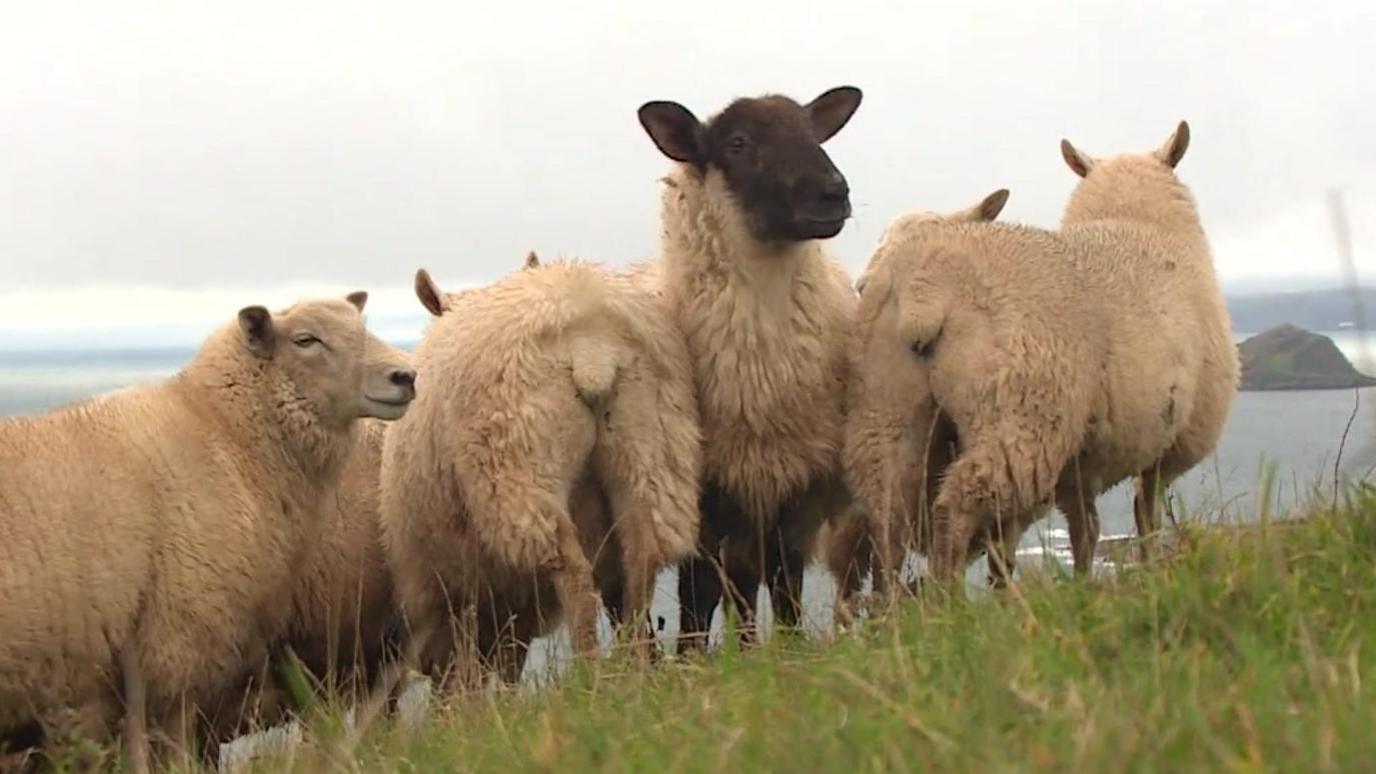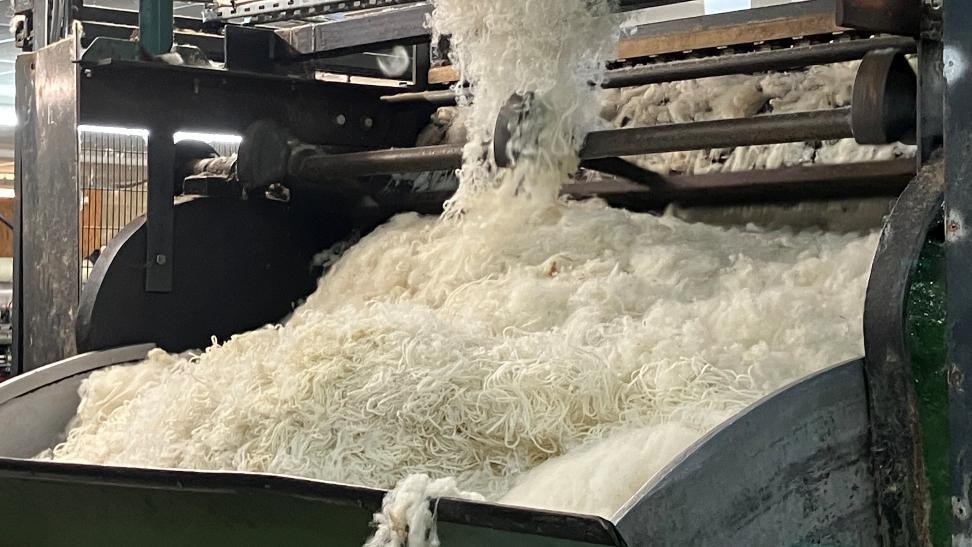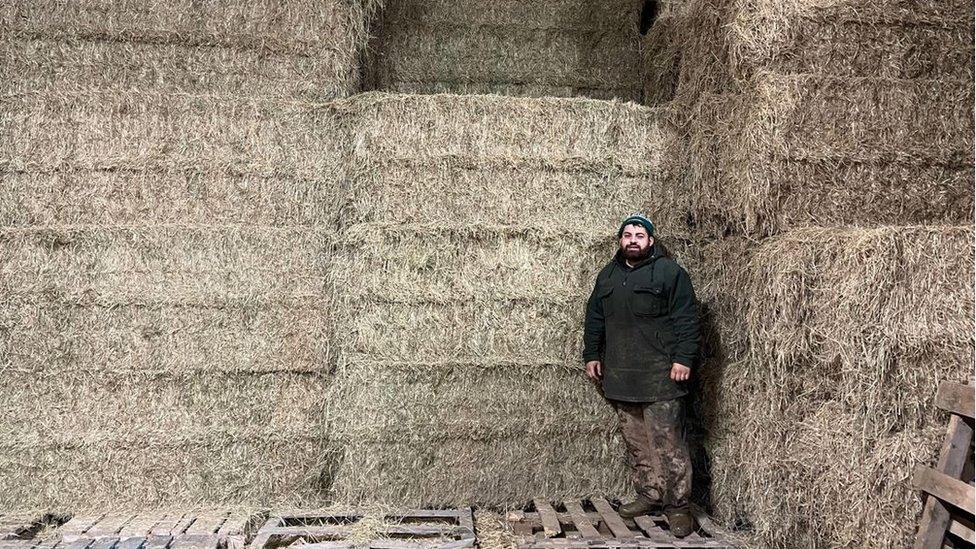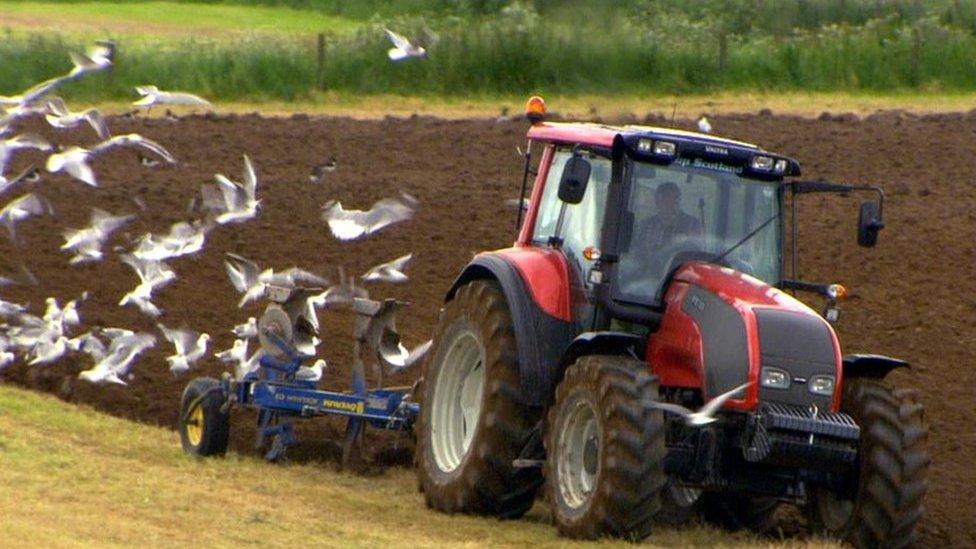Prolonged rain stops farmers from shearing sheep

Dry weather is needed to cut sheep's wool
At a glance
Farmers in south-west England are struggling to shear sheep because of unseasonal amounts of rain
The lack of shearing can have welfare issues, they say
Fleeces sheared previously have also been less valuable because of sheep sweating in hot spells
- Published
Farmers in south-west England are struggling to shear their sheep because of unseasonal amounts of rain.
Weeks of wet weather have prevented some from shearing, an important process for welfare, livestock owners said.
Without dry weather needed to cut wool, animals could become more susceptible to conditions such as flystrike, which could prove fatal, they added.
Fleeces sheared before the current bad weather has also been less valuable because of sheep sweating in previous hot spells, fleece processors said.

Alex Smith said selling fleeces was "not really done for financial gain"
Farmers said that all they needed was three good days of dry weather to be able to shear, but the forecast for the rest of this week in Cornwall alone was not even offering that.
The RSPCA said flystrike, external was a "painful and sometimes fatal condition caused by flies laying eggs on another animal", with eggs hatching into maggots "that eat the flesh of their 'host'".
Bodmin Moor farmer Alex Smith said shearing had been delayed by two weeks at least and recent conditions had been "what famers would call 'properly maggoty weather'."
Farmer and champion shearer Matt Smith, in Cornwall, also said recent "very wet conditions had meant it had been "difficult for sheep farmers", and flystrike had "become a bit of a problem for some".
Mr Smith said: "The preventative measures [including dipping and spraying] are coming to the expiry as to how effective they are, so it's another cost to farmers."

Sheep fleece processors said greasy fleeces had meant lower usable yarn
Alex Smith added: "It costs around £1.30 to shear each sheep, and we get about 40 pence per fleece, so it's not really done for financial gain - it is for welfare reasons, so the sheep don't get flystrike".
Processors also said farmers were also being hit by lower usable yields for fleeces sent in during the spring.
Beki Gilbert, from the Natural Fibre Company in Launceston, said greasy fleeces as a result of sheep sweat had meant that "farmers are getting slightly less yarn from 20kg of fleece than they would have historically".
Follow BBC News South West on Twitter, external, Facebook, external and Instagram, external. Send your story ideas to spotlight@bbc.co.uk, external.
Related topics
- Published12 January 2023

- Published15 November 2022
